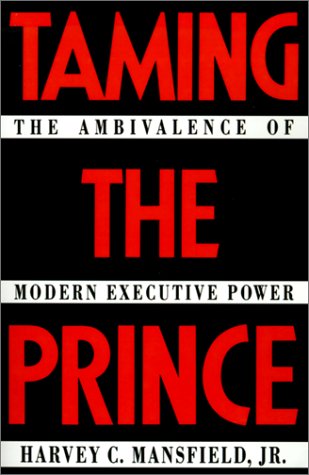The Free Press, 1989; paperback edition, Johns Hopkins University Press, 1993. The Johns Hopkins University Press; Reprint edition (April 1, 1993)
Excerpt:
To understand the modern doctrine of executive power, we need to know, at least approximately, what executive power is. It might at first seem best to go directly to the thing and to ignore opinions about it. For executive power is universally agreed to be a modern necessity: why, then, should it be presented as a modern doctrine? No modern state is considered a going concern unless it is equipped with a strong executive, and every state without one is held to be courting disaster, and regarded with pity and contempt by those more fortunate.
Nor can the necessity of executive power be dismissed as an unconscious assumption which, being universal, goes unchallenged. It is challenged, but never successfully. Even though the assumption regarding the necessity of executive power is universal, there are always some and sometimes many living under free governments who grumble about strong executive actions they find distasteful. They deplore and oppose them as the practices of tyranny, calling them by one of the many contemporary equivalents for that term which our prudery requires and our experience makes very familiar. Yet the protestations subside soon enough as if in recognition of necessity, unless indeed the tune is changed and a clamor begins for strong executive actions which the formerly disapproving now find beneficial. The necessity of a strong executive has, therefore, been tested by those to whom it has not been obvious. Those who speak against it either fall silent or contradict themselves.
Online:
Program on Constitutional Government [pdf]
Amazon

